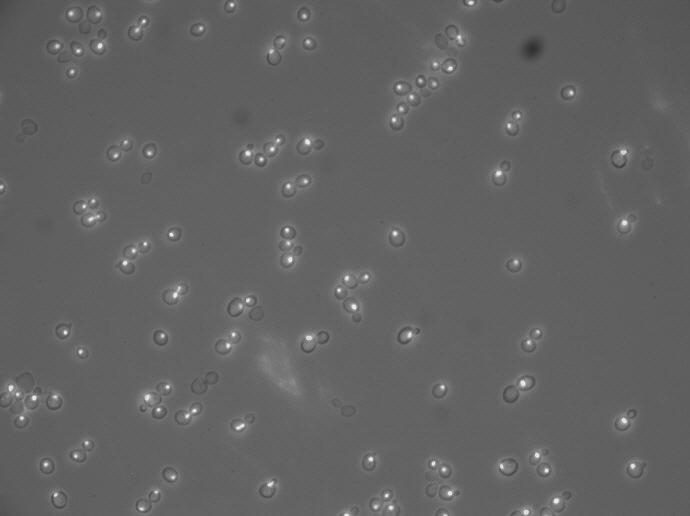Some fun with microscopes and fluorescent proteins: in the image below, you can watch what brewer's yeast does with its DNA as it reproduces itself. This is the microbe that ferments your beer and wine, and makes your bread rise.

30 Days of Evolution Blogging - The Finish Line
Show Me The Science Month Day 30 Installment 30

"Are you confused by all the talk about DNA and genes? We can help," claims the University of Utah. There is now no excuse for not knowing what stem cells do, what messenger RNA is, why SNPs are important, or about any other hot topic in the news about the latest biomedical research. University scientists are getting into the online communication game, although in many cases they are doing it awkwardly. What else do you expect from a bunch of pointy-headed, tweed-wearing, absent minded nerds?
This older talk by computer science pioneer Richard Hamming is awesome:
One of the characteristics of successful scientists is having courage. Once you get your courage up and believe that you can do important problems, then you can. If you think you can't, almost surely you are not going to.
Given two people with exactly the same ability, the one person who manages day in and day out to get in one more hour of thinking will be tremendously more productive over a lifetime.
There is a conversation about evolution that I’m apparently doomed to replay over and over with various family members, friends and acquaintances.
I tell a friend that the evidence for evolution is overwhelming - everywhere in biology you find the signature of evolution; in every little bizzare, unexpected nook of biology you find unmistakeable evidence that all life is related, descended from common ancestors that lived long ago and took forms that were very different from what we observe in today’s organisms. We swim in a deluge of evidence, and I’m baffled that anyone can disregard the pervasive stamp of evolution in nature.
Whoever I’m having this conversation with is equally baffled. How can I look around at the unparalleled complexity of nature, at the amazing adaptations possessed by millions of species, and think that this all came about through an unintelligent process?
Two guest writers on Olivia Judson's blog offer
an interesting idea for spending stimulus money on research:
Instead of simply funding more grants, we suggest using some of the windfall to provide an opportunity for fresh college graduates to pursue two years of research in the nation’s service while the job market is bottoming out. Call it “Research for America.” Our proposal would put young Americans to work and support science — without setting off a later bust cycle in research support, as previous funding booms have done.
 Melville on Science vs. Creation Myth
Melville on Science vs. Creation Myth Non-coding DNA Function... Surprising?
Non-coding DNA Function... Surprising? Yep, This Should Get You Fired
Yep, This Should Get You Fired No, There Are No Alien Bar Codes In Our Genomes
No, There Are No Alien Bar Codes In Our Genomes












